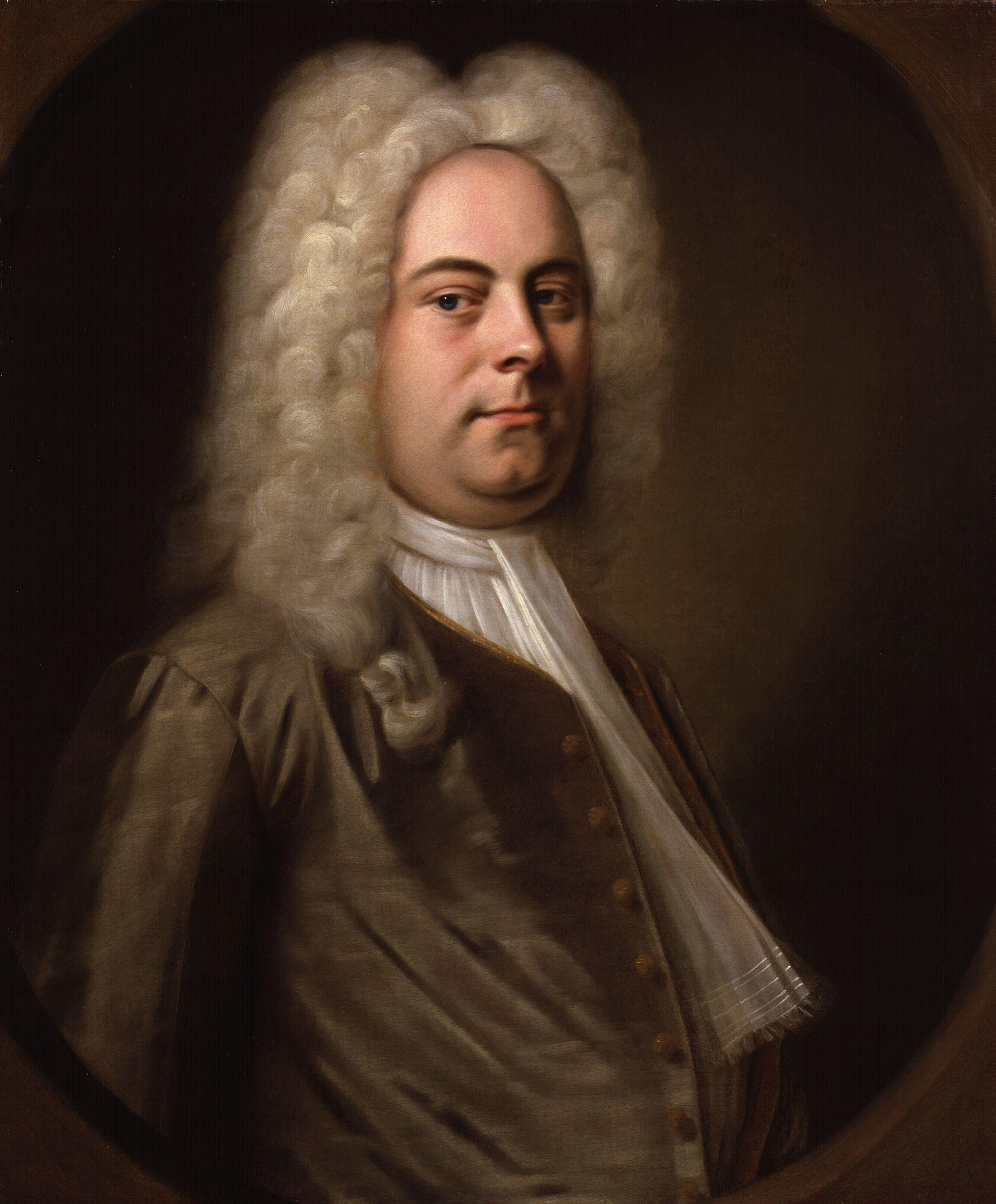Georg Friedrich Haendel [ˈɡeːɔʁk ˈfʁiːdʁɪç ˈhɛndəl] ou Georg Friederich Händel est un compositeur allemand, devenu sujet anglais, né le 23 février 1685 à Halle-sur-Saale et mort le 14 avril 1759 à Westminster.
Haendel personnifie souvent de nos jours l'apogée de la musique baroque aux côtés de Jean-Sébastien Bach,, Antonio Vivaldi, Georg Philipp Telemann et Jean-Philippe Rameau, et l'on peut considérer que l'ère de la musique baroque européenne prend fin avec l'achèvement de l’œuvre de Haendel. Né et formé en Saxe, installé quelques mois à Hambourg avant un séjour initiatique et itinérant de trois ans en Italie, revenu brièvement à Hanovre avant de s'établir définitivement en Angleterre, il réalisa dans son œuvre une synthèse magistrale des traditions musicales de l'Allemagne, de l'Italie, de la France et de l'Angleterre,.
Virtuose hors pair à l'orgue et au clavecin, Haendel dut à quelques-unes de ses œuvres très connues — notamment son oratorio Le Messie, ses concertos pour orgue et concerti grossi, ses suites pour clavecin , ses musiques de plein air — de conserver une notoriété active pendant tout le XIXe siècle, période d'oubli pour la plupart de ses contemporains. Cependant, pendant plus de trente-cinq ans, il se consacra pour l'essentiel à l'opéra en italien , avant d'inventer et promouvoir l'oratorio en anglais dont il est un des maîtres incontestés.
Son nom peut se trouver sous plusieurs graphies : son extrait de baptême en allemand, utilise la forme Händel, son nom s'écrit également Haendel , et cette forme a été adoptée en français à la suite de Romain Rolland. Après son installation en Angleterre, lui-même l'écrivait Handel sans tréma, manière quasi homophone retenue par les anglophones, et signait George Frideric Handel.
Wikipedia
✵
23. février 1685 – 14. avril 1759
